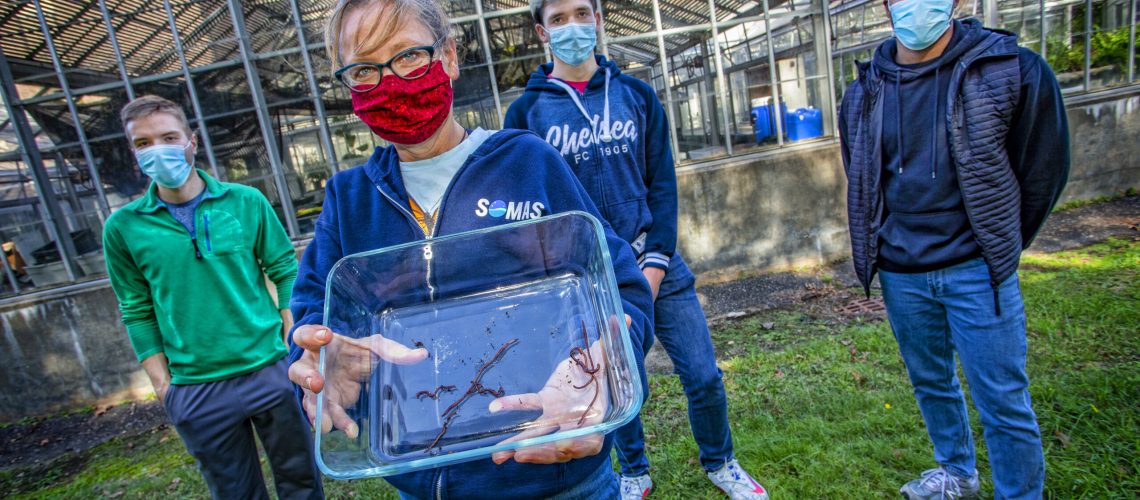
The effect of various Roundup formulations and microplastics on soil.
Dr. Sharon Pochron and her students at Stonybrook University in New York have been using microBIOMETER® for two years. Dr. Pochron studies the effect of various Roundup formulations and microplastics on soil microbes and soil invertebrates.
Her most recent publication (See Figure 2) shows microbial biomass increasing on day 7 in both the Roundup treated and untreated soils – the 0 line depicts the microbial biomass on day 0. This increase is probably due to the soil microbes responding to rewetting. By day 14 the microbial biomass in the uncontaminated soil is back to baseline, but the Roundup treated soil has dropped well below baseline. By day 21 both soils have returned to baseline. This study shows only total microbial biomass recovery, but there is evidence that Roundup can affect microbial composition.
Prolific Earth Sciences is supporting research at various universities. Feel free to contact us to discuss your project and how we can assist.


2 thoughts on “microBIOMETER® collaborates with university soil study”
Comments are closed.